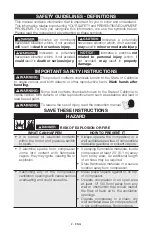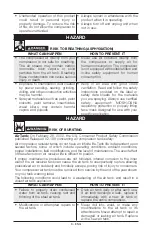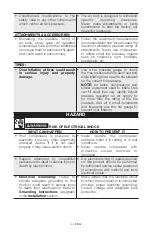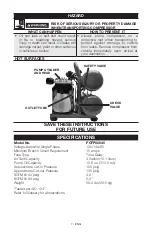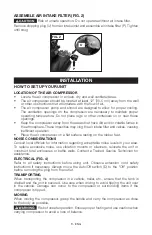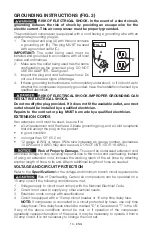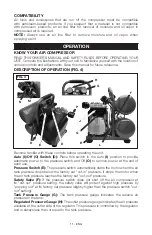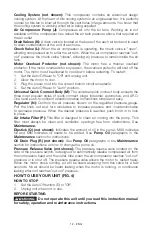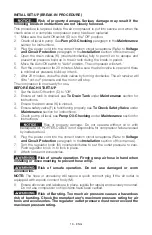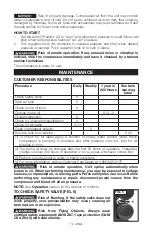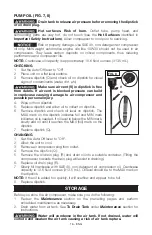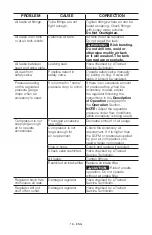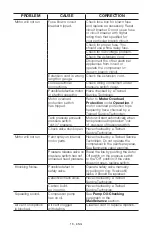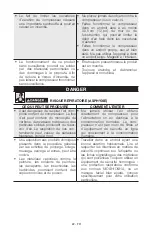
8 - ENG
GLOSSARY
Become familiar with these terms before operating the unit.
CFM:
Cubic feet per minute.
SCFM:
Standard cubic feet per minute; a unit of measure of air delivery.
PSIG:
Pounds per square inch gauge; a unit of measure of pressure.
Code Certification:
Products that bear one or more of the following marks: UL
®
, CUL,
CULUS, ETL
®
, CETL, CETLUS, have been evaluated by OSHA certified independent
safety labor0atories and meet the applicable Standards for Safety.
Cut-In Pressure:
While the motor is off, air tank pressure drops as you continue to
use your accessory. When the tank pressure drops to a certain lower level the motor
will restart automatically. The low pressure at which the motor automatically restarts is
called "cut-in" pressure.
Cut-Out Pressure:
When an air compressor is turned on and begins to run, air
pressure in the air tank begins to build. It builds to a certain high pressure before the
motor automatically shuts off, protecting your air tank from pressure higher than its
capacity. The high pressure at which the motor shuts off is called "cut-out" pressure.
Branch Circuit:
Circuit carrying electricity from electrical panel to outlet.
DUTY CYCLE
Duty Cycle: For proper operation of your air compressor, it is recommended that a
50% duty cycle be maintained; that is, the air compressor should not run more than 5
minutes in any 10 minute period.
ASSEMBLY
UNPACKING
Remove unit from carton and discard all packaging.
CHECK PUMP OIL (FIG 1)
The compressor was shipped with oil in the crankcase. A shipping
plug is used to prevent oil from leaking during shipment. Do not attempt to operate
this air compressor without first checking the oil level. Serious damage can result from
even limited operation unless filled with oil and broken in correctly. Closely follow
Initial
Set-up
under
Operation
.
Risk of property
Q
FIG. 1
T
damage. Use SAE 40, non-detergent
air compressor oil only. Multi-weight
automotive engine oils like 10W30
should not be used in air compressors.
They leave carbon deposits on critical
components, thus reducing
performance and compressor life.
1. Place unit on a level surface.
2. Remove the shipping plug (T)
and insert the dipstick (Q).
3. Check oil level. See
Pump Oil-
Checking
paragraph under
Maintenance
section for instructions.


